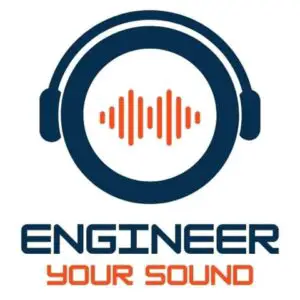If you’re considering a career in digital signal processing, you might wonder how hard the field is. After all, it deals with the mathematical manipulation of digital signals.
Although digital signal processing is actually a very accessible field, and it offers a lot of opportunities for creativity and innovation, because of the mathematical heavy background, many find it very intimidating.
As a general rule, digital signal processing is considered hard by many because of the mathematical theory involved. However, most experts agree that once you use DSP in real-world applications, students find DSP easier.
I remember my Digital Signal Processing classes at my university. As part of my Electronics Engineering Degree, DSP was a fundamental subject to learn.
In this article, I will share some basic information about DSP and what I wish I knew before studying the subject. I will cover,
- What is digital signal processing?
- Is digital signal processing hard? (What I wish I knew)

What Is Digital Signal Processing?
Digital signal processing is the mathematical manipulation of digital signals. This can involve removing noise, improving signal fidelity, or carrying out other processing operations.
DSP is a very important field, especially in the modern world, where so many things are reliant on digital signals. It’s a field of engineering that deals with the acquisition, analysis, and modification of digital signals. These signals can be audio, visual, or electrical in nature.
A lot of the work in digital signal processing involves manipulating signals mathematically. This usually means working with complex numbers, which can be daunting for some people. However, there are many software programs available that can help with this. These programs make the process much easier and more efficient.
Digital signal processing often relies on the use of convolution. This is a mathematical operation that combines two signals to create a third signal. It is used in many different applications, including image processing, filtering, and data compression.
Digital signal processing also often makes use of the Fourier transform. This is a mathematical way of representing a signal in terms of the frequencies that make it up. To learn more about the Fourier transform, I have covered it in greater detail in this article, What Is The Fourier Transform? (Why we need it in simple terms)
DSP has a wide range of applications, from echo cancellation in cell phones to seismic data analysis. It’s used in both consumer electronics and industrial settings.
Audio engineering and electronic engineering are two fields that make extensive use of DSP.
If you’re interested in digital signal processing, there are many resources available to help you learn more about the topic. There are many excellent books and online tutorials that can teach you the basics of the field.
I have learned that one of the best ways to learn digital signal processing is to find a project that you’re interested in and try to implement it yourself. This will give you a chance to put what you’ve learned into practice and to see how digital signal processing can be used in the real world.
If you are interested in learning audio DSP, I recommend the following DSP tutorial as a great place to start.
Is Digital Signal Processing Hard?
DSP can seem very daunting at first since the theory behind DSP can seem very maths-focused and complicated.
I believe the reason that Digital Signal Processing is considered difficult to learn by many results from poor teaching in schools and universities.
I recall my DSP class at university really well. Because I love audio, and always wanted to work in the field, I was particularly interested in seeing what DSP could offer me. Unfortunately, we had a terrible teacher, with zero enthusiasm for the subject.
Unfortunately, my DSP class turned into an hour of monotone mathematics, which was completely theory-based with no references made to the real world, or even why I would want to know all this signal jargon.
Poor teaching can often translate to students believing a subject is much harder than it actually is.
What I Wish I Knew Before Studying DSP
I believe that most professional engineers who work with DSP today will tell you they understood and really learned DSP when faced with a project in the real world.
If you really want to get to grips with DSP, pick a simple project and learn about DSP by trying to solve your real-world problem or project.
By understanding real-world applications, you can start working with DSP. When you have this foundation knowledge you can then dig deeper into the mathematics.
I wish I had tried my own DSP project before jumping into a university degree, which was theory-based.
I did not enjoy DSP at university, however today I work in the audio industry using DSP to filter noise from audio signals as part of machine learning applications.
For some inspiration, check out the interesting projects in the PDF download below, which will help you learn more about the Fast Fourier Transform (FFT) and how to design digital filters.
Final Thoughts
Digital signal processing is a fascinating field that offers a lot of opportunities for creativity and innovation.
If you’re thinking about pursuing a career in digital signal processing, don’t let the maths intimidate you—there are many software programs available that can help with the mathematical manipulation of digital signals.
With a little creativity, you can go far in this field. DSP has a wide range of applications in both the consumer and industrial sectors.
If you’re interested in learning more about DSP, there are many excellent resources available to help you get started, including books, online tutorials, and project ideas.
The best way to learn is by trying to implement DSP yourself on a project that interests you. With a little effort, you can become proficient in this essential field of audio engineering.
